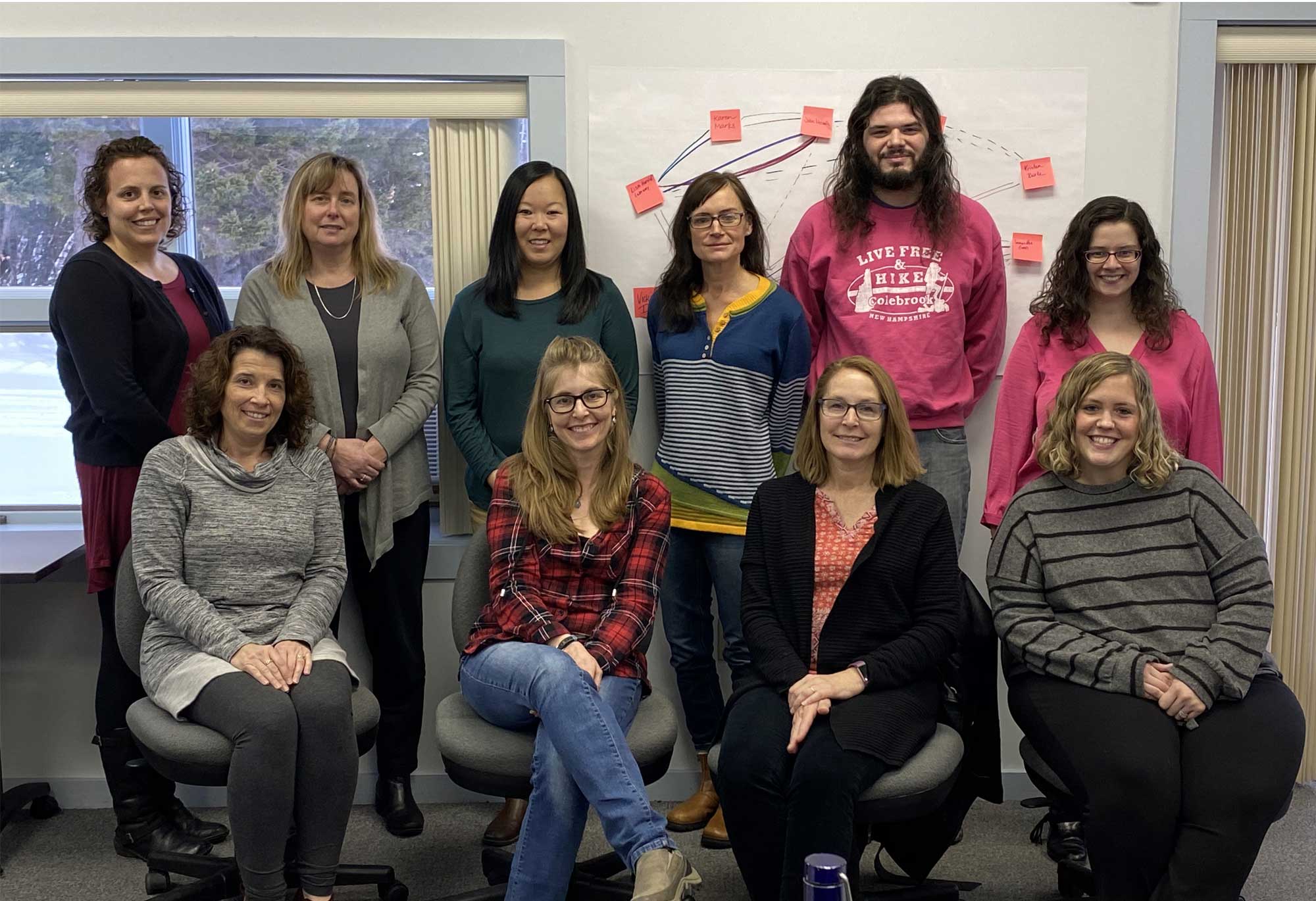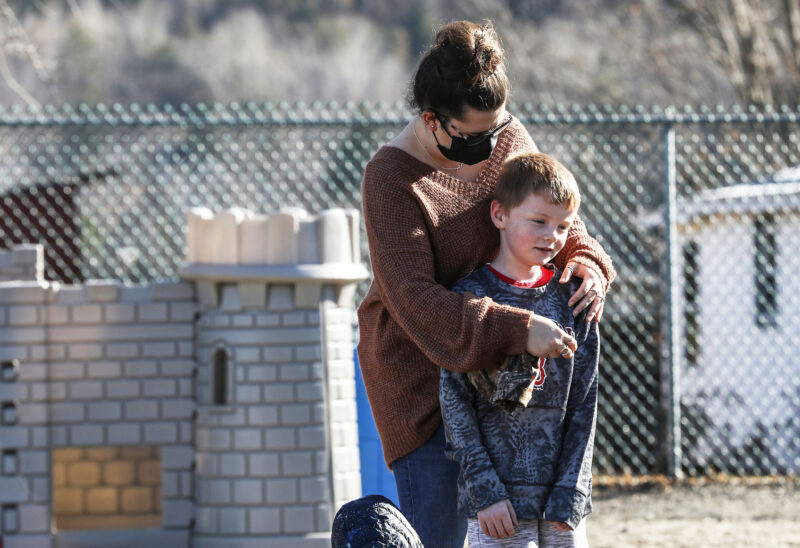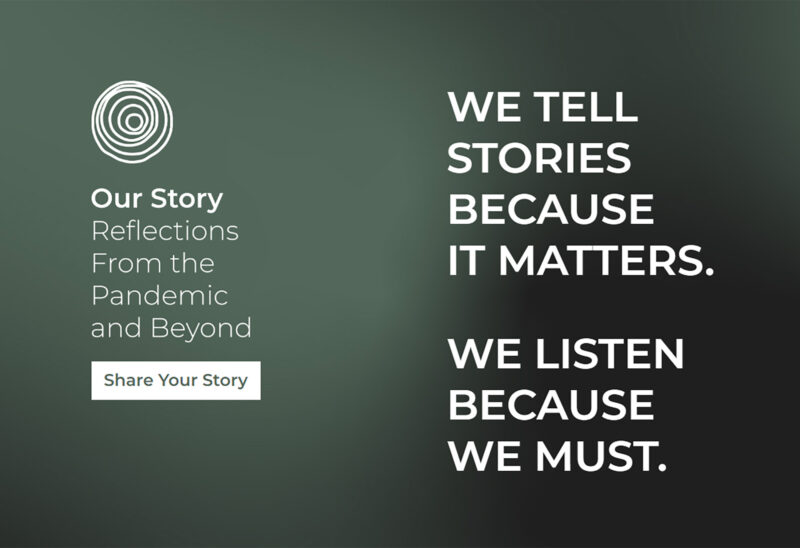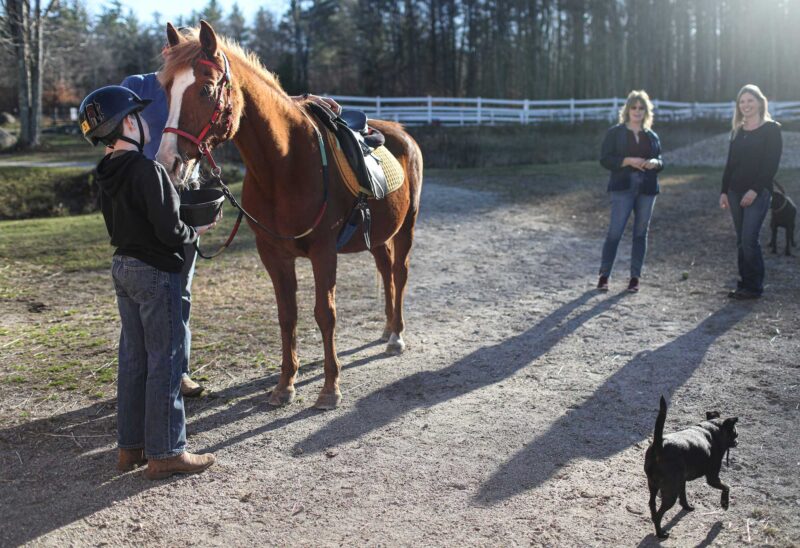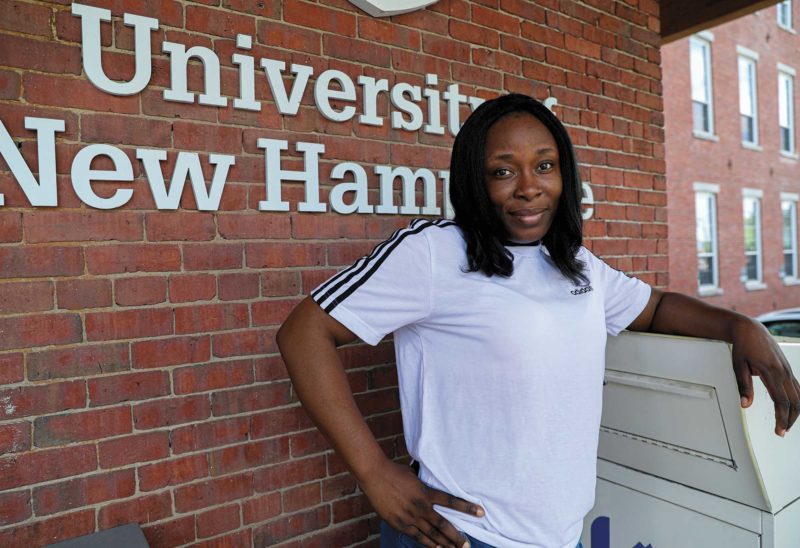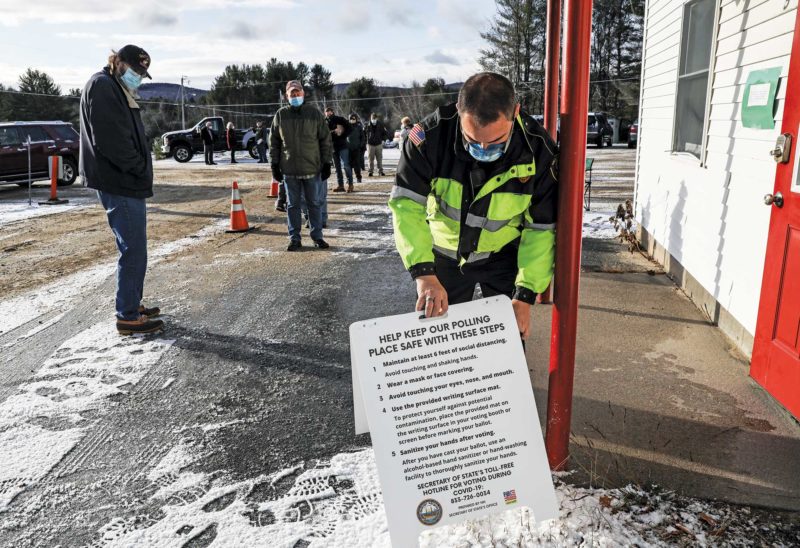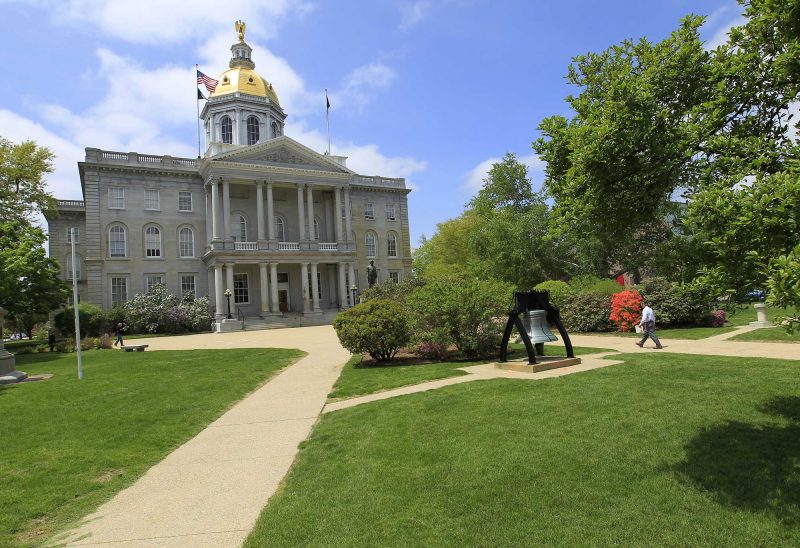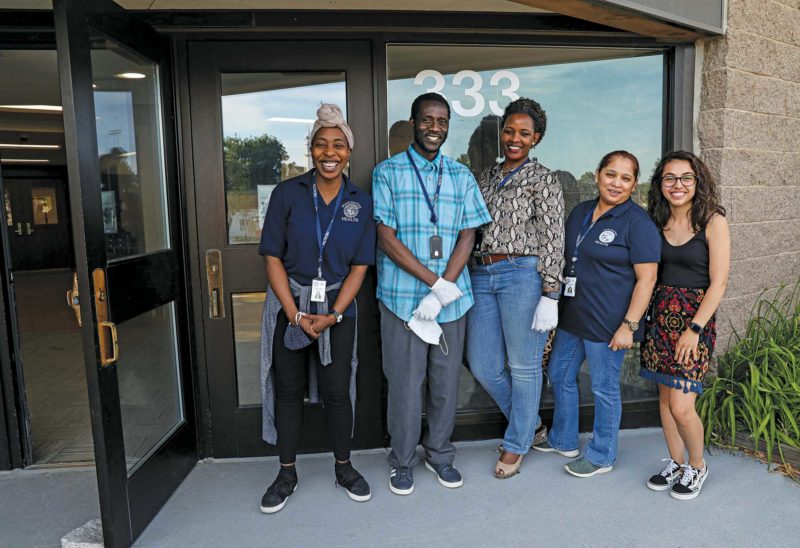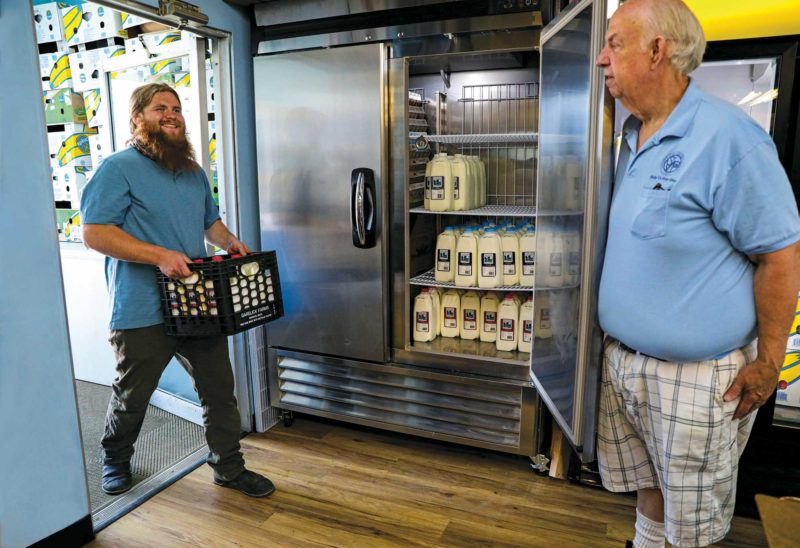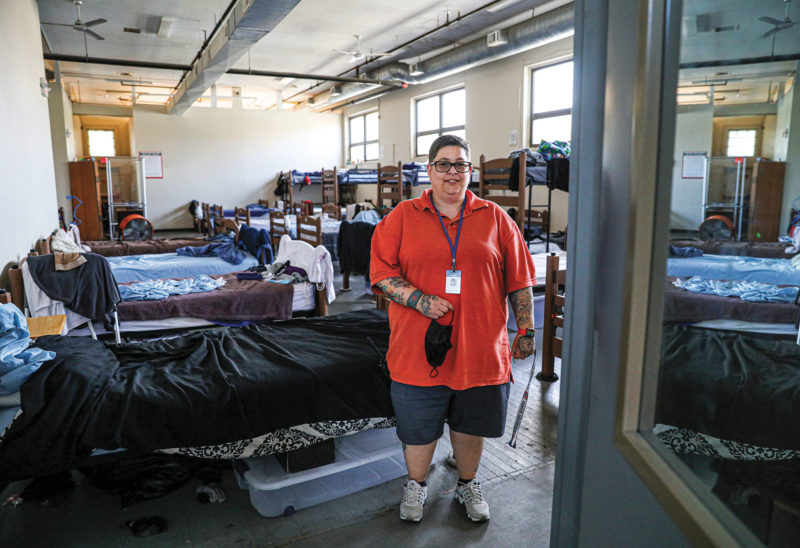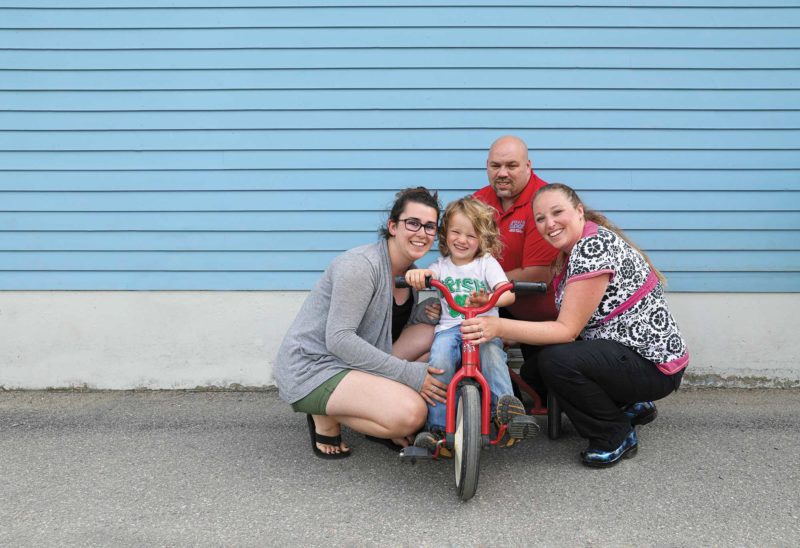When the end of school was approaching last spring, Tina Binette, principal at the Edward Fenn Elementary School in Gorham, was becoming increasingly worried about her students.
Every year, she and her school counselor, Lynda True-Carter, have talked about how helpful it would be to maintain contact with children over the summer — especially those who needed a bit of extra care. But this year, with a pandemic sweeping across the country, school already operating remotely and families increasingly isolated, it seemed even more important.
Everyone was anxious and lonely. But educators were particularly concerned about those students who had struggled through remote learning, Binette says.
“We, as a school, were worried about this particular population,” she says. “They were students that shut down, self-isolated and generally seemed lost.”
So when Binette received a query from Lori Langlois, executive director of the North Country Education Services, asking whether she was interested in a region-wide effort to keep school counselors in touch with students over the summer, she jumped at the opportunity.
Langlois’s group, a consortium of 11 North Country school administration units that fosters collaboration between public schools and community partners, had already been working with school counselors throughout the school year. With a focus on social emotional learning and trauma responsiveness, the group had facilitated a series of trainings and workshops for counselors across the region. Then came COVID-19.
“When schools moved to remote instruction in the spring, it was apparent that the focus of the work to support school counselors needed to shift toward ways counselors could support students and families in coping with anxiety and stressors caused by the pandemic,” Langlois says.
She and her team quickly sent an email survey, asking whether counselors would be interested in working over the summer. Within 24 hours, they had nearly two dozen responses in the affirmative.
“There was overwhelming interest in providing outreach,” Langlois says.
With help from the New Hampshire Charitable Foundation’s Community Crisis Action Fund, Langlois’s team organized with their school districts to extend counselors’ work through the summer. Twenty one of the 26 school districts within the NCES consortium kept counselors working over the summer with help from the grant.
“School counselors are such important mentors and points of connection in students’ lives,” said Michael Turmelle, director of education and career initiatives at the Charitable Foundation. “Keeping that connection going over this summer – especially for children who are most isolated, in this time that is so challenging for everyone – reminds them that their school community cares about them, and wants them to be eager and ready to learn in the fall.”
At School Administrative Unit 58, superintendent Ronna Cadarette says her counselors were able to keep contact with 74 different children and families this summer. Not only was that helpful in addressing the anxieties that might have been growing from isolation and remote learning, she says, it seemed to help alleviate families’ worries about restarting school this fall.
“For families that had trepidation about coming back to school, this ability to stay connected and to understand what school may look like, that’s built confidence,” Cadarette says.
Counselors such as Jennifer Lyon, who works at Groveton Elementary School, organized not only individual sessions, but time for peer-to-peer connection.
“My time included weekly lunch bunches, which gave students a time to talk to other peers and play games,” Lyon says. “Overall, I feel that it was a valuable opportunity and our students benefited greatly.”
True-Carter, from Edward Fenn Elementary, found herself doing everything from exchanging jokes to watching a virtual fashion show to having a young student give her a Google Chromebook introduction to the family cat.
“It was so important to have this person from a school setting enter their worlds,” she says.
This was especially true for students who were particularly isolated, perhaps because they lived with elderly relatives or others with elevated risk for contracting COVID.
“I’m an adult, but I know their friends, I am connected to this place,” she says. “And I was able to let them vent. They could tell me just how unfair it felt. How bored they were. I could help change their mindsets – to ‘yes, it’s tough. But you are doing this because you have family members who are more vulnerable. What you are doing has a purpose.’”
True-Carter’s students also were able to participate in chat groups, monitored by both the school and parents, to connect with each other. Sometimes they would include Principal Binette.
“It would be a group of fourth graders, say, and they’d be having a chat saying ‘hey, how are you guys?” Binette recalls.
Now, Binette says, she is hopeful that students will be more ready to return to school, even if she and the rest of her staff recognize that many children may need more care than usual before being able to delve into schoolwork.
“We are experiencing a collective trauma,” True-Carter says. “All of our lives are being affected by this …now it is about offering these students a relationship, knowing that people care exactly where they’re at, and then providing them coping skills so that they are available for the academic learning to take place.”

